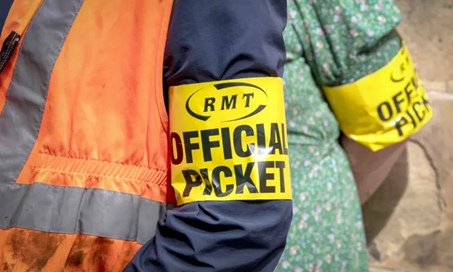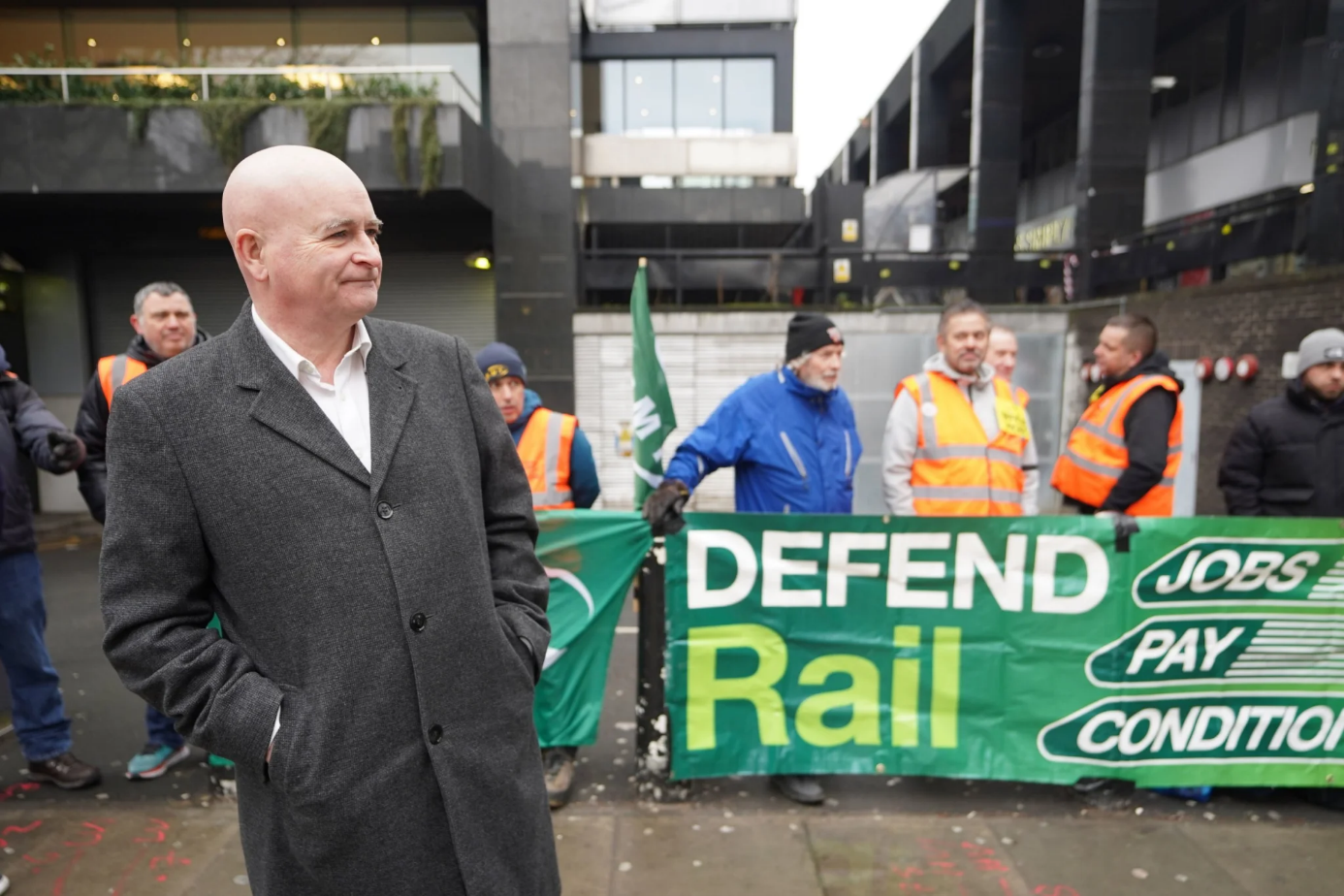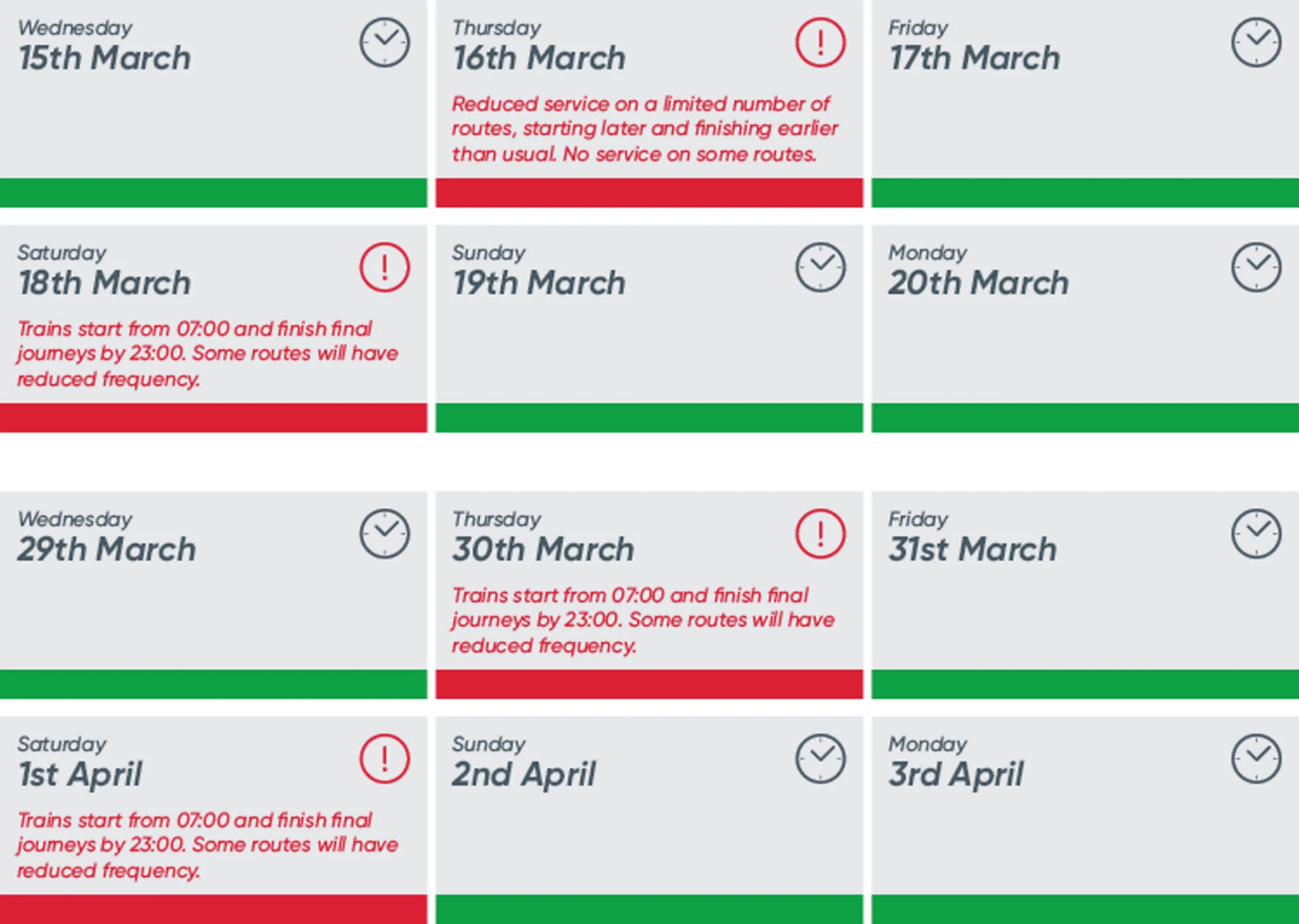By: David Holmes

The 15th of March 2023 marked the beginning of the new rail strikes organised by the RMT(National Union of Rail, Maritime, and Transport Workers) and ASLEF(The Associated Society of Locomotive Engineers and Fireman). London Underground drivers(ASLEF and RMT Unions) have started in the vanguard of the new series of strikes, leading to accomplish their requests by the train operating companies and the government. Unfortunately for the railway industry, the general secretary of the RMT union, Mick Lynch, has rejected the latest pay rise offer by the train operators which would see the staff wages rising to 9% in the next 2 years, naming the offer as „rubbish”. Backed up by the members of the union, he is accusing the train operators of lacking diplomacy and „specialising in failure” which has caused so far a long-running industrial dispute.

On the 16th of March, three in five train services have been canceled as a result of the rail strike, commuters are losing and the whole economy is losing too, the chair of the Rail Delivery Group, Steve Montgomery, saying it will „cost our people even more money at a time they can least afford it”. Actions in favor of the working class are known to be successful if there is a consistent majority, some would say persistence is the key, but at what costs and for how long? Rail workers from 14 train operators took part in the strike and the same ones will continue to follow the unions in the days to come. Britain’s railway capacity has been reduced by 50- 60% in days of strike, with no services to run at all in particular areas, and with mobilised contingency staff to try and cover the gaps, it seems unlikely to succeed without an actual agreement.
The affected train companies are:
- Avanti West Coast
- Chiltern Railways
- CrossCountry
- East Midlands Railway
- Gatwick Express
- Greater Anglia(Including Stansted Express)
- Great Northern
- Great Western Railway
- LNER
- London Northwest Railway
- Northern
- Southern
- Southeastern
- South Western Railway
- Thameslink
- TransPennine Express
- West Midlands Railway
- London Underground
While other train companies are still running, they are indirectly affected by the strike because they have to adjust their schedule in order to meet the demand, considering the increased number of commuters. The RMT union takes it further and has announced more days of strike on the following dates:
- Saturday, 18th of March 2023
- Thursday, 30th of March 2023
- Saturday, 1st of April 2023
Going back to February 2023, which has been another failed month for negations, we had signs of a long-lasting issue without an ending in sight. Passengers, workers, and taxpayers were all affected by the strikes, therefore we have a proven pattern for the days to come. The general secretary of the RMT union, Mick Lynch, has vowed his members will carry out „sustained and targeted industrial action over the next few months” as a result of failed negotiations with the Network Rail train operators over pay, job security, and working arrangements. Back then, the RMT union rejected Network Rail’s offer, having the general secretary, Mick Lynch, saying: „The message we have received loud and clear is to reject these dreadful offers. Our members are fully prepared to fight tooth and nail for a negotiated settlement in the months ahead”. Every round of negotiations that failed so far seems to have made the RMT union stronger and eager to continue their race against inflation, holding accountable the railway network operators for freezing the pay increase in the last three years. There has been a misconception among negotiators on both sides of the table, they were expecting to agree on a conditional offer while in the end, the RMT union made it clear this is not going to be possible. Rail Delivery Group responded to the RMT union on the 16th of February 2023, after their offer of a 9% pay increase was also rejected: “The RMT agreed from the outset that the industry needed modernisation and understood that was how a pay rise could be funded. After many months of extensive talks and meeting key demands on DOO, pay and job security, the leadership have now reneged on that position and says they not accept any reforms. They know that no employer who has lost 20% of its revenue could accept those terms.”
We have a pattern in place and the statements of the sides involved, we can predict huge costs for the railway industry, more jobs can be lost and in the end, when sooner or later it comes to an agreement between parties, it will probably be the taxpayer’s ticket price contribution that will make the difference. The RMT union is expecting a pay rise of over 10% and until this will become a certainty, the United Kingdom will face further disruptions in the railway network in the months to come.
The Office for National Statistics(ONS) stated that the average salary of rail workers in 2022 was GBP 45.919 (EUR 52.145), considering five different job categories. The RMT union denied the figure because the rail cleaning staff was not included, who are not categorized as rail workers by the ONS.
Share on:




